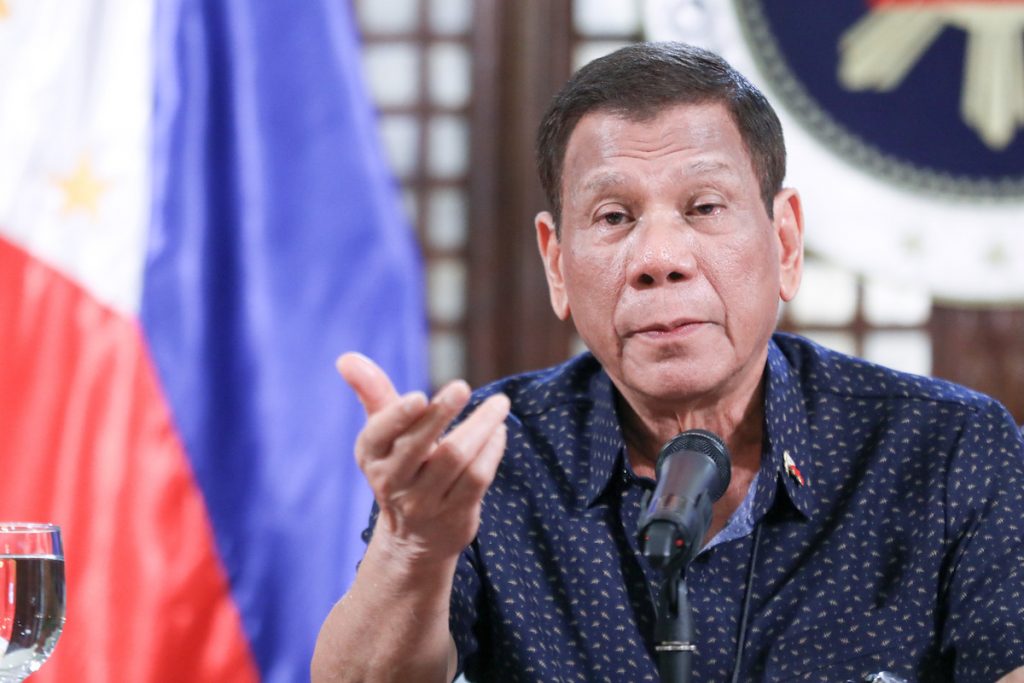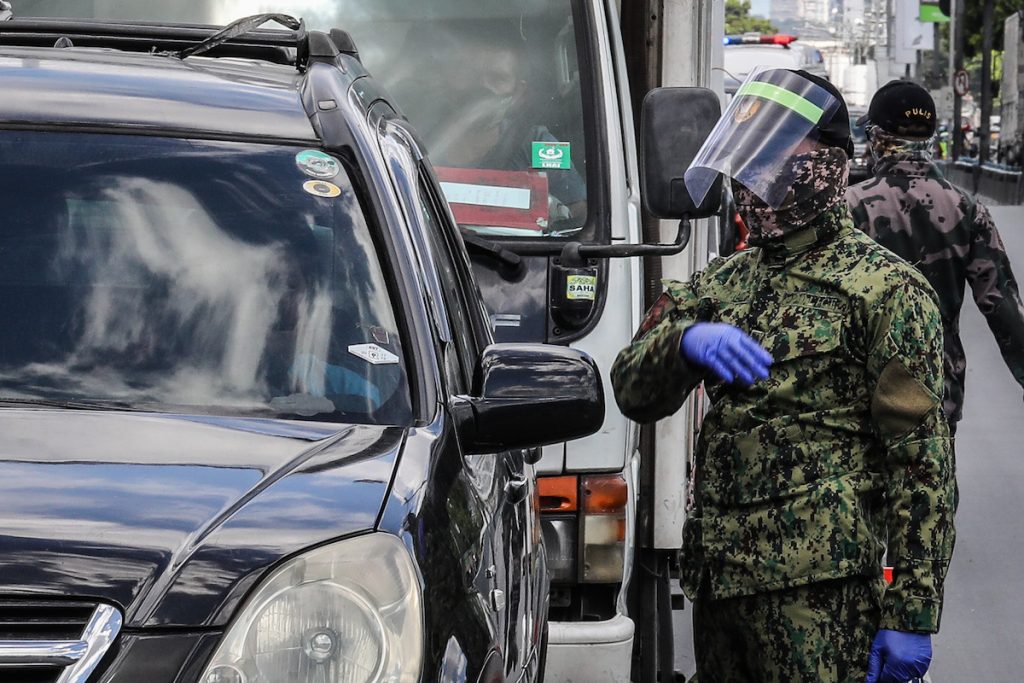Activists in the Philippines are wary that a crackdown on “false information” amid the coronavirus pandemic will target critics of the government’s response to the health crisis.
On April 6, police tore down protest streamers at a community kitchen for the poor in the capital after policemen barged into the village where protest over lack of food aid erupted earlier.
Authorities ordered the community kitchen closed, claiming violations of quarantine rules even as residents said they followed distance and other health requirements.
The raid came as lawyers for 21 residents who were arrested during an April 1 demonstration posted bail with money donated by sympathetic celebrities and politicians.
The police action occurred hours before President Rodrigo Duterte announced he was “inclined to extend” the lockdown on the main island of Luzon to April 30 from April 12.
Meanwhile, two editors of university publications have been threatened with charges after they panned aspects of a lockdown to contain the spread of the coronavirus disease.
Joshua Molo, 20-year-old editor of a university student paper was summoned by the village council in his hometown after three former high school teachers filed a cyber-libel complaint against him.
Molo was threatened with possible arrest if he did not issue a public video apology. A village official also demanded that he sign a pledge to desist from posting “anti-government” messages.
The student complied and apologized but refused to “give up my right to free expression.”
He was later asked by the complainants to hide the apology after social media users sent his cause trending on Twitter and on Facebook.

Threats on critics
In the central Philippines city of Cebu, the editor of Today’s Carolinian, a student newspaper of the University of San Carlos, also received a warning for criticizing the provincial governor.
Berns Mitra, editor of the Carolinian, said the governor’s legal consultant warned of charges of libel, inciting to sedition and violation of a local executive order against “fake news.”
The governor also tried to summon Mitra to a “dialogue,” which he ignored.
“I have media law etched on the back of my hand, and I didn’t’ violate anything,” Mitra said.
But he said the unwanted attention has had a chilling effect on the campus press, with the publication staff deciding against an editorial critical of the governor’s new order for residents to download an app that could make for easier tracking of potential COVID-19 carriers.
The Center for Media Freedom and Responsibility and Human Rights Watch Asia noted a slew of reprisals on journalists, local government officials, and netizens who expressed criticism of government response on the crisis.
Carlos Conde of Human Rights Watch noted that the government is using its authority, buttressed by a problematic provision of the law, to crack down on critics.
“Duterte should call on government officials to focus on measures to defeat the coronavirus and ensure that Filipinos have access to information, rather than be deprived of it,” he said.
Authorities in Cavite province, south of the capital Manila, also filed charges against Mario Batuigas, an online news editor, and reporter Amor Virata for spreading “false information on the COVID-19 crisis.”
Violation of the “Bayanihan to Heal As One Act,” which was signed by Duterte into law on March 25, is punishable with two months imprisonment and a fine of US$20,000.
Human Rights Watch-Asia also reported that police have filed a case against a town mayor for allegedly “causing a COVID-19 scare.”
Social welfare net frays
Duterte’s late night address on April 6 could spawn a new wave of criticisms and reprisals.
The president warned of a possible shortage of funds should the government fail to stem the spread of the disease.
He also hinted that a tight international rice market could affect food aid to at least 18 million poor families in a country that used to be one of Asia’s top rice producers.
The president begged citizens for patience, saying the government had to manage the US$5.3 billion funds approved by Congress for the COVID-19 response program.
He admitted the government’s original expense forecast “is not enough” and ordered Finance Secretary Carlos Dominguez to “steal or borrow” to produce the money.

The Department of Budget and Management released last week US$2 billion to cover two months of the government’s social amelioration program.
Duterte has centralized all aid under the Department of Social Welfare and Development, which is headed by a retired military general.
The president has appointed former police or military generals to address the pandemic because soldiers and policemen “have the system.”
Several local government officials, however, have complained about red tape, stringent requirements, and narrowed quotas that leave out many beneficiaries of government aid.
There was also confusion on whether aid is based on households or families, a crucial distinction in congested urban centers where as many as three or four families occupy a single house.
As of April 6, the Philippines has 3,660 cases of the coronavirus disease as the Department of Health reported 414 additional cases.
The health department reported that 11 more patients died of the disease, for a total of 163 fatalities. Nine patients recovered from the virus, raising the total number of recoveries to 73.
Health officials earlier said the public can expect a spike in the number of cases due to the country’s expanded testing capacity.








